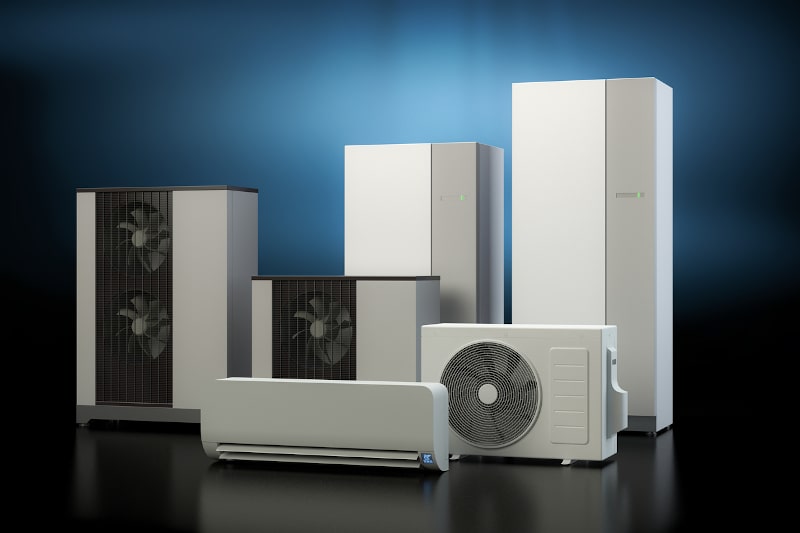As the world is moving toward a minimal carbon footprint, super-efficiency and sustainability, the demand for environmentally friendly heating and cooling solutions is rapidly increasing. One such solution that has gained immense popularity, especially in Dover, DE, in recent years, is heat pumps. Here’s a comprehensive guide to how they function and the reasons they are more efficient than all the other HVAC systems.
Heat Pumps and the Principle Behind Their Functioning
Nature has a tendency to always maintain balance. If anything seems disproportionate, you’ll see dramatic changes that will automatically try to restore the balance. For instance, if you place a hot cup of coffee in a cold environment, like inside the refrigerator, it will quickly get cold because its higher temperature is not in equilibrium with the lower temperature of the surroundings.
A heat pump works on the same principle. All it basically does is transfer heat from one point to the other. The only difference it has with nature is that users can manipulate it to fit their requirements.
The Mechanics
Say you want to warm your room; the first thing you’ll do is to key in your desired temperature on the thermostat. The outdoor unit of the heat pump will then extract heat from the outside air and transfer it to the indoor unit through refrigerant lines. The indoor unit will use this extracted heat to warm your indoor air until it reaches the desired temperature and then circulate it throughout your home using fans.
This entire process works in reverse in cooling mode. Instead of extracting heat from the outside air, it extracts heat from the indoor air and releases it outside, leaving your home cool and comfortable.
The Parts That Make This Happen
This process largely depends on a substance known as refrigerant. Refrigerant is efficient in absorbing and releasing heat because it can easily change from liquid to gas and back again.
A typical heat pump system comprises four main parts: the compressor, condenser, expansion valve and evaporator. The compressor compresses the refrigerant to increase its pressure and temperature, turning it into a hot gas. The evaporator valve will control the amount of this hot gas that should go into the next component at a time, which, in this case, is the condenser.
The condenser is a network of tubes with fins where the refrigerant will dissipate heat to the indoor air that you want to warm or to the outside air, which is what you want if you’re cooling your home. The evaporator’s job is to let the refrigerant expand and turn into a cold gas before it goes back into the compressor.
Types of Heat Pumps
The first and the most popular type of heat pump is the air-source heat pump. It works by transferring heat between your home and the outside air as discussed above.
The second type is the ground-source or geothermal heat pump. It works just like the air-source heat pump, but instead of extracting heat from the atmosphere, a geothermal heat pump extracts thermal energy from the ground using underground pipes filled with water or refrigerant.
The third type is the hybrid heat pump. It comprises an air-source heat pump that works hand in hand with a traditional gas boiler to provide efficient heating and cooling regardless of the outdoor temperatures.
Heat Pumps and Cold
There’s a common misconception that heat pumps can’t work during freezing months. Yes, the system struggles to absorb heat when the outdoor temperatures drop too low. However, modern heat pumps have advanced technology that enables them to operate efficiently even in freezing temperatures.
Still, it is important to consider your climate zone (ranges from one to eight, with eight being the coldest) when buying a heat pump to ensure it can hack your local temperatures. You could also consider hybrid or geothermal types if you’re afraid that an air-source heat pump might inconvenience you during winter.
Heat Pump Services Near You
Heat pumps are efficient, environmentally friendly heating and cooling solutions that can last you over 20 years with proper installation and regular maintenance services. If you live around Dover, DE, contact us at Griffith Energy Services Inc. for inquiries about setup, repairs and tune-ups you may need.
Image provided by iStock




